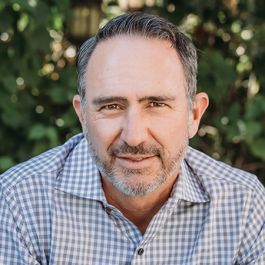The question of cultural balance weighs heavily on Alexander Kouts’ mind. The founder and CEO of Indiegov values personality fit above all else when it comes to staffing his democracy-centered company. In a hiring process of a thousand decisions, to base aptitude on a single resumé is to surrender potentially successful candidates to the buzzsaw of limited performance metrics.
“A company’s culture is a weighted human average of every one of its employees,” Kouts said. “But the formula is more heavily weighted for founders, execs and the first 30 or so folks that you bring in.”
For tech companies, scaling revolves around balancing financial growth with the subsequent influx of talent and associated costs. But at its core, it’s also the struggle for a company’s soul. Founding employees might dictate the pulse of a small company’s zeitgeist, but that can end up creating inertia when the internal culture these early hires establish isn’t scaled across growing teams. Talent acquisition becomes as much a matter of culture management as an economic one.
But in the midst of accelerated expansion — a familiar tale for those in San Francisco — companies have developed their own strategies to maintain identity and vision. Real-estate company Mynd makes forecasts of hiring needs to prevent underutilizing talent. CapitvateIQ and Truework invest in specific teams, talent acquisition and managers respectively, to better align their needs with their resources. Robust Intelligence designs their interviews to reflect real-world applications and their high bar. There’s no one solution for growing pains.
For Kouts and his so-called “48 happy warriors,” culture belongs to the employees. To dive deeper into what that means, Built In San Francisco sat down with these up-and-coming companies to hear how they successfully balanced the scales of culture and capital.

Indigov is a digital constituent management platform for the government.
What’s the biggest challenge your team faced as the company scaled? And how did you overcome it?
I lose sleep thinking about how to preserve our culture as we double, triple and quadruple in size. Hiring mistakes early on are extremely difficult to correct as those decisions irrevocably dictate who you are as a company. Even the most intentional executive team can only marginally affect, reinforce and refine the direction of its culture.
As the company grows, managing culture becomes a long game of consistency — a thousand small decisions throughout the hiring journey that many teams don’t even notice they’re making: job post diction, diverse candidate sourcing, a candidate’s first touch point, alignment of messaging between interviewers, post-interview communication and most importantly process ownership. One of the best things we did was hire an exceptional head of people operations who journey-mapped this entire flow to ensure every step is aligned with our values. Central ownership of the process is absolutely key to doing this well.
What’s been your “secret weapon” when it comes to scaling successfully?
We hire for personal characteristics over experience. We strongly believe that who someone is as a person and what they are capable of is far more important than what school they went to or what company is on their resume. Past experience is only one limited proxy for what someone is capable of and given that every job, company, team and industry is so vastly different, it’s not even a good one. Does the applicant demonstrate low ego matched with high competence? Are they accountable and take ownership of their actions? Do they know what they want out of their career? Are they great teammates? Are they an excellent communicator with a good sense of humor? We have countless examples of finding amazing people with less than traditional backgrounds that have added exponential value to our team and mission.
I lose sleep thinking about how to preserve our culture as we double, triple and quadruple in size.”
Looking ahead, what will growth look like for your team?
Indigov is a rapidly growing company in every sense of the phrase. Over the next year, we expect to see the largest growth in our sales and marketing teams, closely followed by professional services, engineering and product. We are looking for happy warriors who are seeking meaning in their work. With the sustained cultural and geopolitical instability in the world it’s become harder and harder for many to work at social networks, gaming, ad-based media and generic mid-market SaaS. Indigov is defining a new category of software designed to rebuild the user experience of democracy — to strengthen its ability to provide for and serve our communities at a time when it’s desperately needed.
Mynd is a digital real estate company.
What’s the biggest challenge your team faced as the company scaled? And how did you overcome it?
As Mynd was growing rapidly and we were seeking a new round of funding to help fuel our next phase of growth, we hit a lot of roadblocks. We were raising our Series C and we got 137 rejections. WeWork had just blown up and Covid-19 was starting to spread across the U.S. There were a lot of macroeconomic factors at play that made us nervous, but we remained cautiously optimistic. We wound up closing the round one week after the NBA season was canceled due to Covid-19. We knew we needed to secure that funding and we simply persevered until we did. Sometimes, that’s just what you have to do — keep pushing.
What’s been your “secret weapon” when it comes to scaling successfully?
For us at Mynd, our secret weapon approach has been to build the team we think we’ll need one year from now. It’s a tricky balance, because you don’t want to bring on subject matter experts and have nothing for them to work with. But if you carefully hire for roles that will be pivotal to the company’s growth, and give those individuals the right amount of runway to plan and execute, that will help propel the business forward in a very intentional way.
Sometimes, that’s just what you have to do — keep pushing.”
Looking ahead, what will growth look like for your team?
We’ve had quite a year at Mynd. We just announced our expansion into Indianapolis, Jacksonville and Nashville. We’re now operating in 25 markets, up from 20 at this time last year, and managing 11,600 homes. We expect to have another 4,000 properties under management in these new markets by 2023. We just opened a new sales headquarter in Tempe, Arizona, and we expect to more than double our revenue by the end of this year.
As our reach scales, our team is growing to match that pace. We grew our team from less than 500 at the start of 2021 to 825 today. With our recent market expansion, we’re focused on building out our property management operations team, and looking forward, we’ll continue to prioritize hires on our growth team, bringing in strategic thinkers to validate new opportunities. Onward!

Truework is a data privacy and verification company.
What’s the biggest challenge your team faced as the company scaled? And how did you overcome it?
The biggest challenge we’ve faced as we’ve scaled is keeping the hiring bar high, because there are lots of competing fires when hiring fast at scale. When an increasing revenue goal triggers an immediacy to hiring, every company has to make a very intentional internal equation about how much they’re willing to sacrifice each of the following variables — time, money, seniority — to bring in their ideal candidates for each role. Insanely great quality is out there for every role, but you can’t pay 150 percent of the market every time, or increase the role’s title, scope or level. So, do you settle for pretty great instead, or do you keep hunting for someone else and burn time?
We had to figure out what that equation was for us — how high into the pay-band percentiles we would go, how much extra time we would sacrifice in each search to keep looking for the right person, how often we were willing to go above the spec’d out level to bring in the insanely great candidate. This has pressure-tested us to keep our hiring bar super high.
What’s been your “secret weapon” when it comes to scaling successfully?
We’ve invested enormously in our managers. Despite venture capitalists having drilled into most founders that attrition’s biggest influence is usually poor management, companies often skimp on their management training investment. It’s pretty crazy, really, that all these hyper data-driven founders choose to skimp here. I believe it’s because it’s a pretty hefty upfront monetary and time investment to make, and it takes a long time to see widespread change.
Our founders, however, did not ask us to skimp here — we’ve invested heavily in management training. From executive coaching to a monthly deep dive training on a core competency to a high ratio of HR business partners to managers, Truework has invested heavily — and it shows. On our engagement surveys, #1 or #2 out of 30 areas, management scores the highest. Also, our regretted and voluntary attrition is best in class for SaaS startups. We’re really proud of this, and plan to continue doubling down.
So, do you settle for pretty great instead, or do you keep hunting for someone else and burn time?”
Looking ahead, what will growth look like for your team?
We are in an awesome stage — we are not super early where job security and equity’s long term worth are in question, but also not late stage where employees are a cog in a machine. Recent product-market fit, major institutional Series C investment on great terms and being sub-200 headcount put our employees in a great position where they can really be a part of the growth story; truly understand what and why things are happening with the business; and grow their career.
We recognize this is a precious stage, so we are being very careful to not grow super fast just because we can. Instead, we are very thoughtful, and arguably conservative, with how fast we grow, so that culture, communication and infrastructure are properly scaled with it. All teams are scaling at the same ratios, so across the board we’re an awesome place to look.

CapitvateIQ is an enterprise platform for incentive compensation.
What’s the biggest challenge your team faced as the company scaled? And how did you overcome it?
We added over 100 employees within the first four months of this year. Our biggest challenge as we scaled was alignment — ensuring that everything is tracked to our forecasted timelines and that we stick to that as closely as possible. We wanted to make sure that we don’t hire redundant positions where we may not have sustainable work for that person in the future. Finally, we built in a capacity planning model to keep up with changing priorities and getting ahead of potential attrition.
This allows us to take the burden off of the interviewers and recruiters to ensure a smooth and efficient scheduling process that is scalable.”
What’s been your “secret weapon” when it comes to scaling successfully?
Built out our talent acquisition (TA) team in alignment with the hiring needs. Hiring a mixture of experienced team members who understand and can run their business function, as well as young, hungry up-and-comers who have a high output.
We took a multi-pronged effort, focusing on building the correct operations that can help scale for the medium-term such as building out leveling, comp and equity models as early as possible to maintain equity as we grow. We also built out TA dashboards that give good optics into what is working and what is not, as well as how to leverage that data for repeatability, efficiency and quality.
We also made sure to hire great recruiting coordinators that can focus a ton of time on the candidate experience. This allows us to take the burden off of the interviewers and recruiters to ensure a smooth and efficient scheduling process that is scalable.
Looking ahead, what will growth look like for your team?
Our continued focus for the remainder of this year will be on engineering, product and design hiring, as well as customer experience. We will be adding approximately another 50 heads this year, which is made easier by the remote-first culture that enables us to hire from anywhere in the US.

Robust Intelligence offers failure prevention for artificial intelligence.
What’s the biggest challenge your team faced as the company scaled? And how did you overcome it?
As Robust Intelligence continues to grow, we’ve been focusing on increasing awareness of our company’s mission and vision. We are an incredibly talented team building a product that will ensure the integrity of machine learning (ML) models and make them more secure and reliable. In focusing on increasing our mission’s awareness, we’ve been able to gain recognition from CB Insights as one of the 100 most promising private AI companies. In addition, we’ve also been recently certified as a “Great Place to Work" by the eponymous organization, highlighting our unique culture and workplace which we continue to build on. We’ve also overcome challenges that any fast-growing startup faces, such as making interviews fair by rigorously training our interviewers and ensuring their judgments are calibrated, building pathways to ensure growth opportunities and mastering recruiting operations.
What’s been your “secret weapon” when it comes to scaling successfully?
Successfully scaling a company requires rapidly growing while keeping the bar high for new hires. To do that, we look for candidates that have an authentic attachment to the company, our people and our goal of building fair and responsible AI. To find candidates that meet these criteria, we reach out to our team’s network and design interviews to focus on real-world problems. We strive to make Robust a great place to work. We invest in resources that provide growth and leadership opportunities while doubling down on retention strategies that ensure employees enjoy their work experience.
We’ve also been recently certified as a ‘Great Place to Work,’ highlighting our unique culture and workplace.”
Looking ahead, what will growth look like for your team?
Robust is rapidly growing on all fronts. Our revenue and customer count are increasing exponentially, and meeting our customers’ needs means the need to continue to grow our team. Over the past year, we grew from 10 to 60, and we hope to be at 100 people by the end of the year. We will focus on hiring for our engineering and go-to-market teams for the next two quarters. We’re also going to focus on hiring more specialists that can bring their domain knowledge to improve our expertise in critical areas. We’ll also continue to ensure that Robust’s staff is representative of the communities we serve by being intentional with hiring practices and building a team that is prepared to tackle the complex challenges posed by AI bias.














